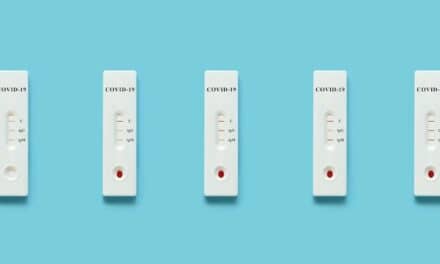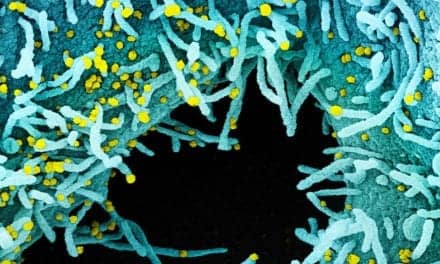During the recent AACC‘s Annual Scientific Meeting & Clinical Lab Expo, in Anaheim, Calif., the Brazilian health tech company Hilab, specializing in clinical analysis tests, participated in the congress alongside ABIMO – Brazilian Association of Medical Devices Industry. The company showcased innovative solutions for the healthcare industry, including two notable launches and the point-of-care Hemogram device capable of delivering a complete blood count with the assistance of artificial intelligence and other technologies within 30 minutes.
The Hilab Lens, the smallest point-of-care device for a complete blood count, represents a significant breakthrough in the field of digital microscopy. According to information from ANS- National Health Agency, this test is requested in nearly half of medical orders, as it can identify hundreds of diseases.
The device works by healthcare professionals collecting a blood sample from the fingertip, similar to rapid glucose tests. The extracted sample is placed in a capsule and inserted into the device. The sample information is sent via the Internet of Things to the company’s central laboratory, where the test is verified first by Artificial Intelligence and then by a specialized healthcare professional in hematology. Finally, the test results are sent to the patient’s mobile phone via SMS and email, all within half an hour, while traditional methods take approximately 12 to 48 hours.
Bernardo Almeida, an infectious disease physician, and chief medical officer of Hilab, explains that “the complete blood count is so popular because it evaluates the quantity and quality of the main blood components, supporting the assessment and monitoring of acute infectious conditions, anemia evaluation, as well as assessing overall health. With the test’s ease and speed, medical professionals and patients can benefit from the prompt delivery of results in both routine and emergency cases.”
The efficiency of the artificial intelligence-driven device was demonstrated through a pilot operation at the Brazilian hospital Erasto Gaetner, a reference institution for the clinical and surgical treatment of oncology patients in Curitiba (PR). Moreover, its theses were presented and validated in articles published by Nature, one of the most relevant scientific journals in the world. Today, the device is already in use in various healthcare facilities across the country, including occupational medicine companies, clinics, and other locations.
Additionally, Hilab introduced two new devices at the event: the Hilab Volt and the Hilab Wave. These compact devices will also operate remotely connected via the internet to the health tech’s central laboratory. The Hilab Volt functions based on electrochemistry and reads an electrode that selectively interacts with the sample, generating a useful analytical electrical signal. It will allow the evaluation of indices such as calcium, sodium, potassium, iron, and glucose, among others. The Hilab Wave operates through spectrophotometry, an optical analysis methodology that quantitatively measures the absorption of light by solutions, used for biological and physicochemical investigations. It enables dozens of tests, including phosphorus, magnesium, cholesterol, Vitamin D, and even the incidence of malaria.
“Participating in a scientific and international event of this magnitude reinforces Brazil’s ability to transform the healthcare sector using technology as an ally. For Hilab, as a Brazilian company, this is a particularly special and rewarding moment, marking a positive milestone in their history, indicating that they are on the right path by providing quality and innovative services that can address urgent healthcare access issues worldwide,” says Marcus Figueredo, CEO, and co-founder of Hilab.
Featured Image: Hilab’s point-of-care Hemogram device was recently demonstrated at AACC 2023. Photo: Hilab





